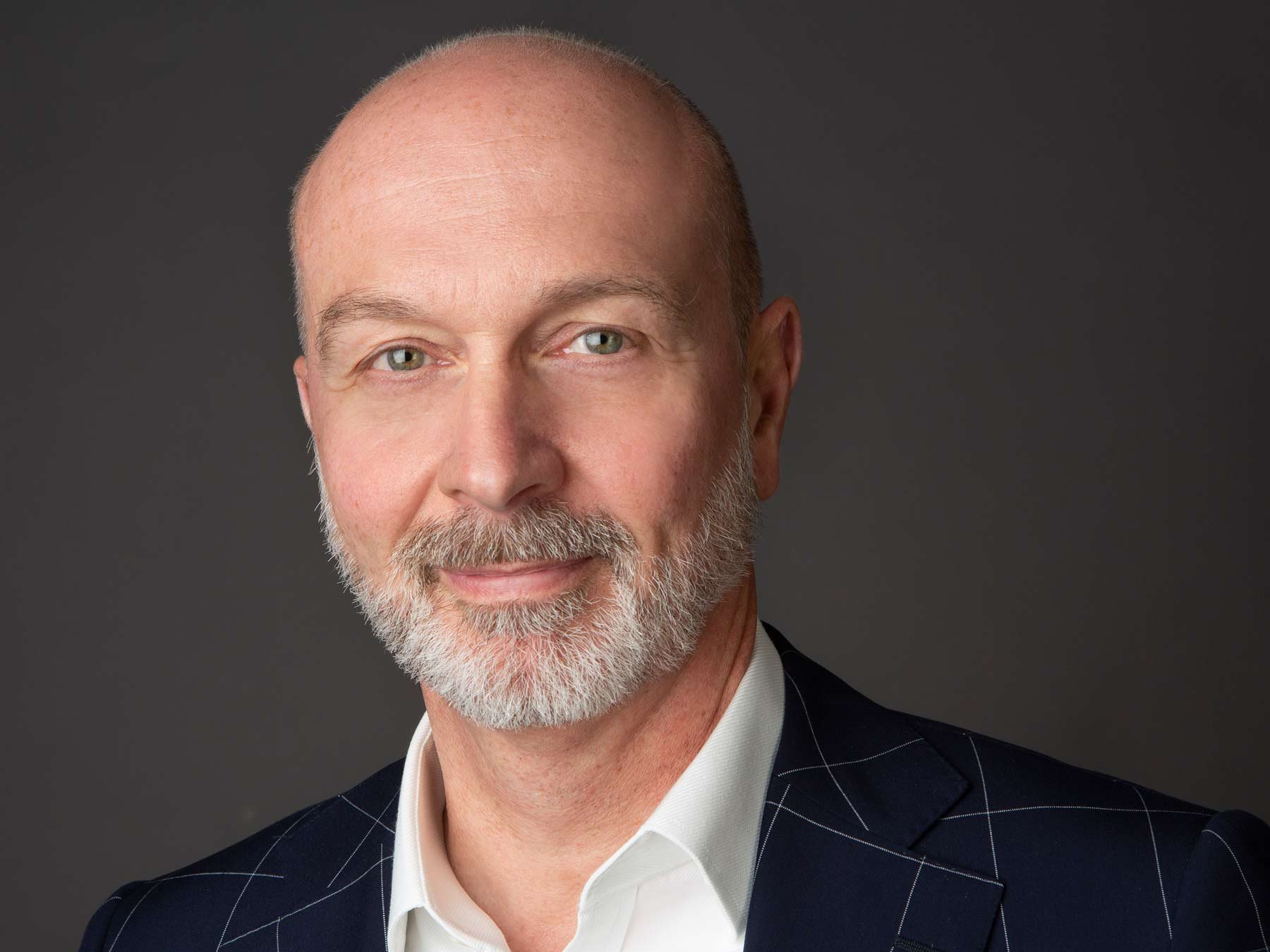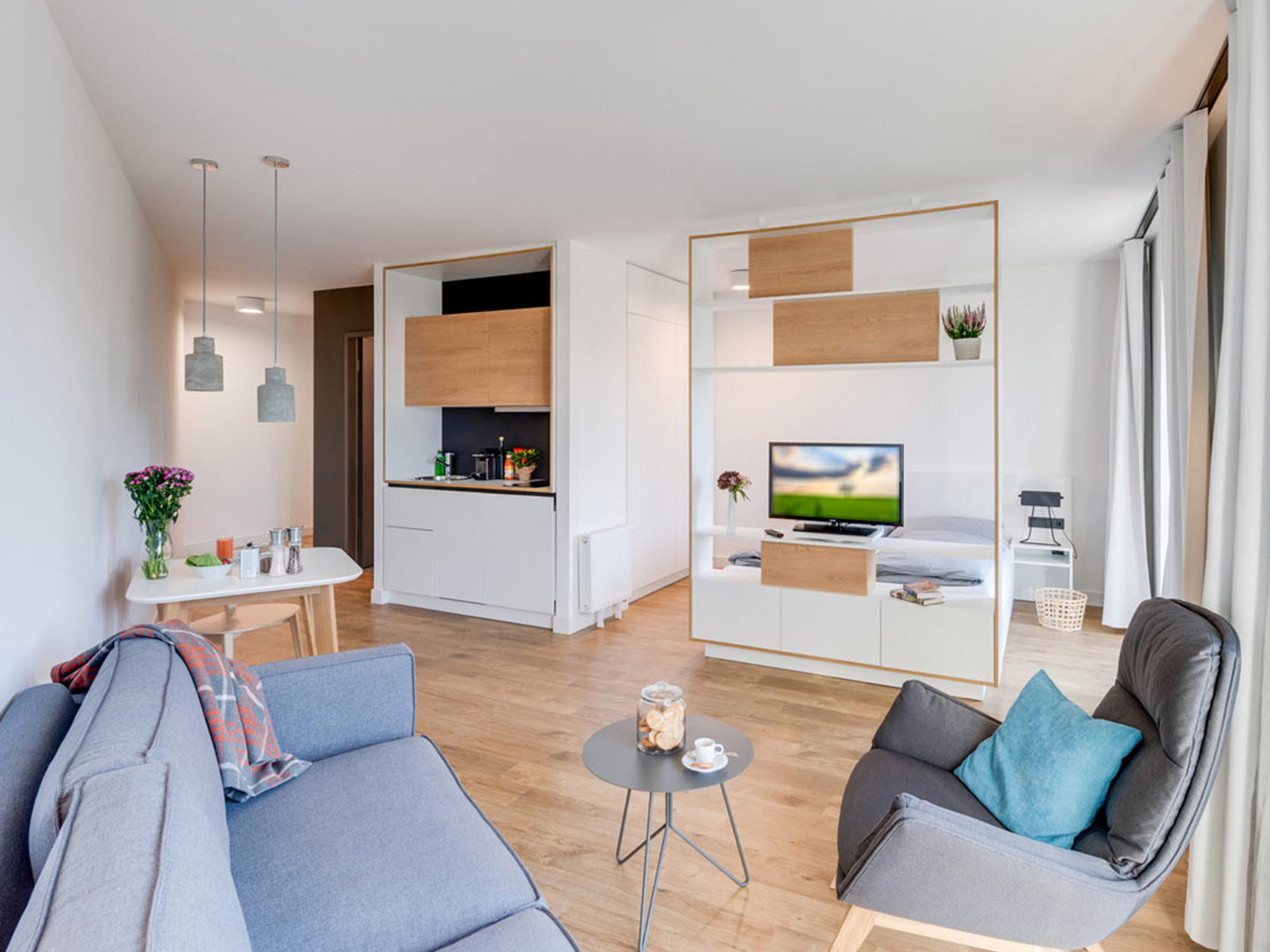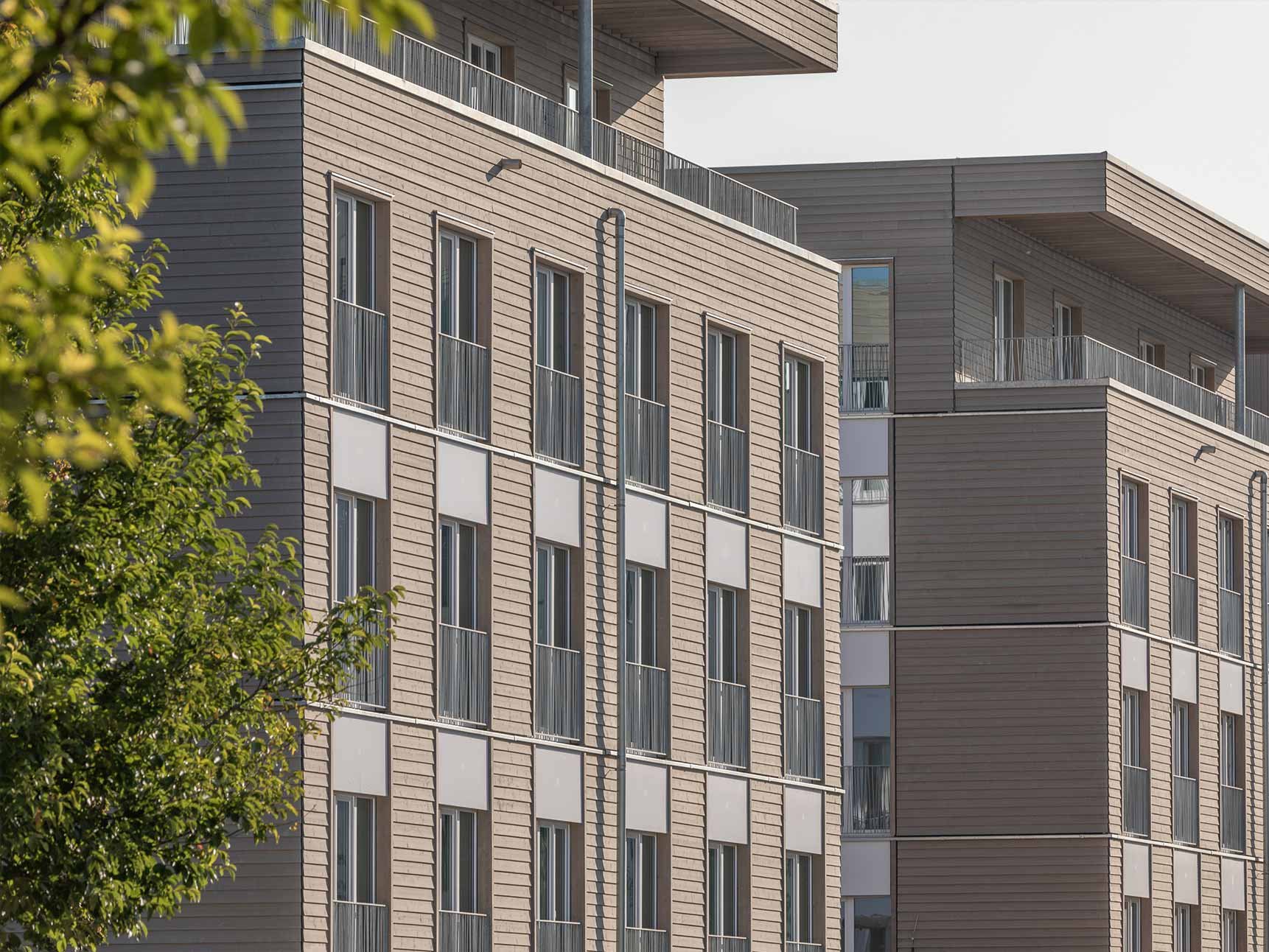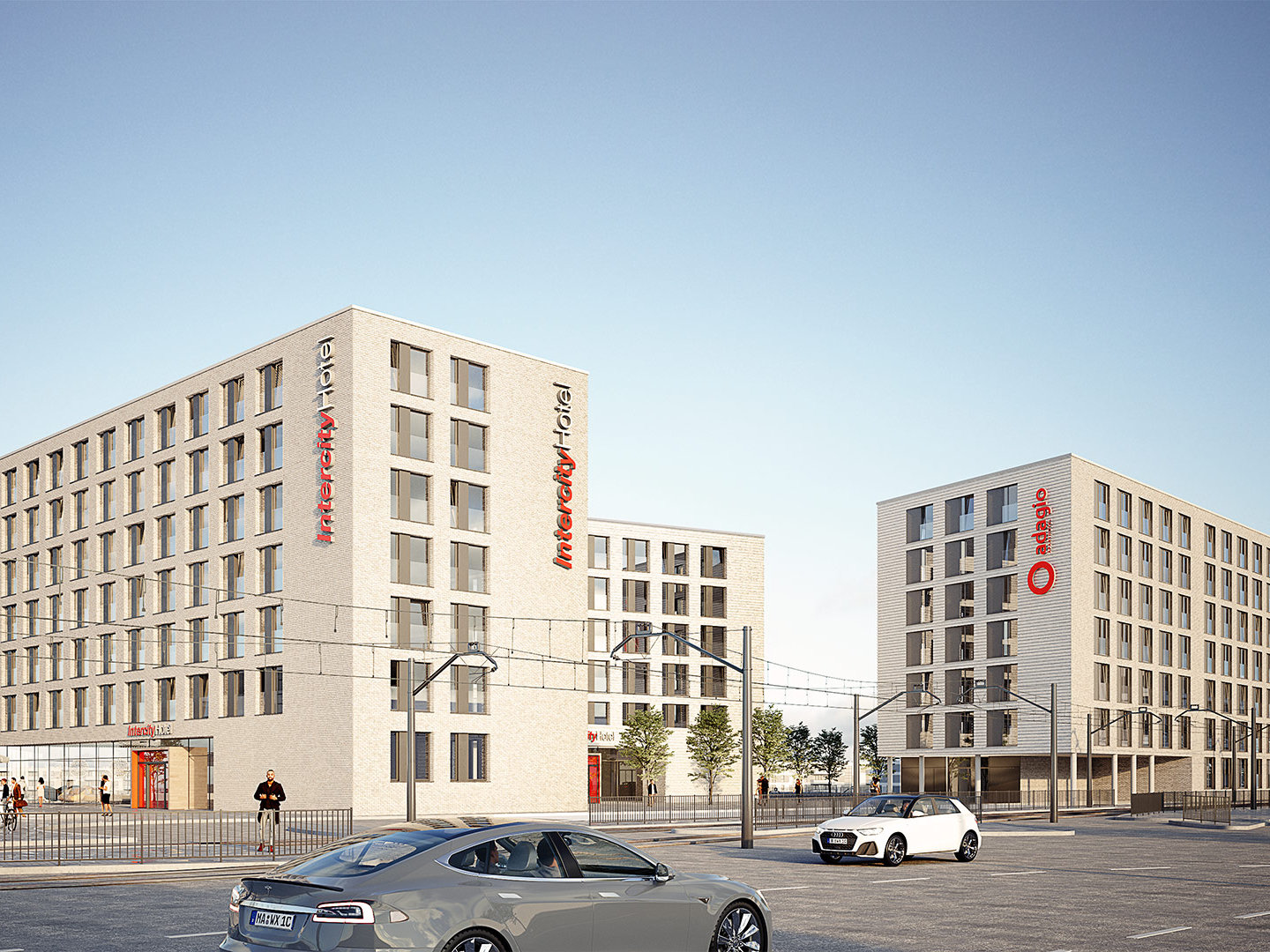Living, especially funded living, has overtaken hotel projects in the pandemic. Nevertheless, the largest German hotel project developer to date, GBI AG, intends to remain loyal to the hospitality sector – amongst other things, with attractive duo or trio projects. Hotels and the other asset classes are keeping the balance in the portfolio for now. GBI‘s own apartment brands are the most successful assets without restrictions. However, the GBI will break new ground with senior living products soon. Reiner Nittka, Chairman of the Executive Board of GBI Holding AG, talks in detail about the changes on account of corona – in the business and in the market.
GBI AG, Berlin, was founded in 2001. Today, the project developer has 170 employees and its investment volume exceeds two billion euros. The company is active in several segments: housing, serviced apartments and hotels.
Mr. Nittka, how has GBI‘s focus changed on account of corona?
Corona has sped up the change in GBI‘s focus. However, this development already started much earlier. Ten years ago, we started building up the SMARTments brand and began diversification this way. In the course of the booming hotel development, we were able to see that a growing number of players entered the sector, advanced purchase prices were called for and also paid. Then, when we saw that an increasing number of projects were realised that we had – sometimes multiple times – declined before, we reduced our hotel pipeline.
What kind of projects were these?
The hotels were partly auctioned off. In 2019, hotels cost nearly the 30-fold of the annual rent, which was extreme. Our first hotel, the Mövenpick in Berlin, was sold for 14 times more about 20 years ago. Back then, this was a really good result. However, the development in 2019 could not be healthy.
But the GBI has to change course because of corona as well?
Parallel to the hotel segment, we started the development of our SMARTments family in 2012, as already mentioned: the first was SMARTments student, then we entered the Serviced Apartments sector (SMARTments business and recently also SMARTments senior), and then came SMARTments living, the micro apartments for longtime residents, followed by funded and private rental apartment development. When we started in 2016, the funded apartment development was an absolute niche product, but it has developed very fast and successfully.
Then, at the start of the pandemic at the beginning of 2020, when the development of new hotel projects suddenly stopped overnight, we were less affected than many other hotel players thanks to this development for two reasons:
First, we already knew where we wanted to go and had already started a pipeline in the living asset class, however, we had to speed up the process. And second, we were in a good position to finish our already started hotel projects, as the ten hotels, which were under construction at the start of the pandemic, were all sold, in large parts in forward funding.
This year, we will be able to achieve the balance between hotel class and the other asset classes for the first time. Concerning the number of new projects, housing development had already dominated before. And even in project volume – the total investment cost – housing development is overtaking hotel developments.
This is remarkable: A project like our hotel trio at the central station in Duesseldorf (Adina, Hampton by Hilton, Premier Inn), whose construction we just finished, is an investment of more than 100 million euros. This turnover cannot be compensated easily with funded housing. There, the volumes are significantly smaller, and the locations are less prominent.
What happened to the hotel projects started prior to corona?
We not only finished the construction in Duesseldorf. So far, the GBI has not had to change the asset class of any hotel projects, which were planned prior to corona; and this is very remarkable. I will give you an example why this is not a given: We were able to sell our dual hotel project in Heidelberg featuring an Adagio and an IntercityHotel in the middle of the first corona wave within the framework of a forward deal to a sub-fund of the Hotel Special Fund of Bayerische Versorgungskammer (BVK).
The BVK was of course extremely careful and assigned an external audit firm to scrutinise the rents and the sales factor again in the light of the pandemic. And what happened: They gave their go. This shows that our calculations were conservative and sustainable already prior to the crisis. Last fall, we had the topping out ceremony in Heidelberg for both hotels.
Our strategy – caution and good partners – supports us so that we are able to keep the hotel asset class and send hotels – which we developed prior to the pandemic – into the construction phase now. This includes the IntercityHotel in Lubeck and soon the Premier Inn in Duisburg.
And how will things continue in the accommodation segment?
We continue our work in the Serviced Apartment sector with our SMARTments business. The brand and the product are performing very well in the crisis. In our SMARTments business in Berlin, for example, we had an occupancy between 75% and 88% in January and the properties have 152 and 186 apartments! In the next few months, we will start the construction of two more properties of this brand. In addition, we were able to sell such project developments very well during the crisis.
And how do the banks cope in the financing of hotels (concerning new business, set-up financing)?
It all depends on partners and location. The already mentioned properties, at the excellent location near the central station in Heidelberg and purchased by the BVK – Adagio and IntercityHotel – were financed by a saving banks consortium. In any case, you need a final investor at your side very early, if you apply for financing.
What do investors expect today compared to pre-corona times?
On the one hand, the investors expect a coverage of the lease agreements by extensive entry commitments of the parent companies and bank guarantees. On the other hand, a significantly increased lease coverage quota has to be added. In comparison to the time prior to the pandemic, the rate increase is at least 50 percent.
This way, obligations from the agreements are increasingly secured by actual financial deposits and less by virtual accounts. In this regard, there have always been higher requirements for hotels compared to other asset classes, but it becomes much more obvious now.
How have the preferences for urban destinations shifted since corona? Has an A location lost significantly in value as everyone relies on B locations and more leisure now? And what do you think about the idea of plastering B leisure locations with large hotels having 150-200 rooms?
Basically, the A cities will not disappear from the list of locations in high demand right away. They are still nearly unaffordable – the hoped-for opportunities did not occur. And old as well as new competitors are emerging and keeping the prices high: office development, serviced apartments, the entire complex of care homes and assisted living.
The operators have learned that they can do better business in a few of the C or D cities than in some A destinations. For years now, and also prior to corona, we have tried to make a point here. There are wonderful but often ignored studies by Treugast Consulting featuring Hidden Champions. The provided data was surprising, even prior to corona. And B and C destinations with a good mixture of business guests and tourists are able to manage the pandemic better than the major cities … Take a look at the current search profile of the 75 locations of Premier Inn, then you will know, what I mean.
And yes, B leisure destinations are attracting attention in a new dimension; therefore, some of the properties in Lübeck, Kiel or Rostock were full in the last two summers. And the numbers in Hamburg were much better than the ones in Frankfurt. In many cases, this was the „overflow“ from the booked-out leisure and beach hotels in the backcountry.
Do you give urban resorts a chance? This means: products in best city locations with a lot of room for leisure and socialising. Is this still affordable at all? And how?
I am sceptical concerning this term and the related projects. Here, corona is rather contra productive in my opinion. Because the people want to get out, relax and also – as we hear everywhere – spend more money, but in real leisure hotels. I don‘t think these city resorts are alternatives.
How long will the „hype“ about Serviced Apartments last or will it even increase?
I will answer this with two very current numbers: In January 2022, the occupancy in a branded hotel in a provincial B capital was at about 10 percent. However, SMARTments business in the properties located in Berlin had, as already mentioned, an occupancy of 75 to 88 percent in January. And the positive prospective remains the same for February.
If classical hotels convert their spaces, become more digital, more flexible concerning bookings, offer co-working spaces and become more efficient in their structure as well – will hotels and serviced apartments differentiate at all? What does a developer think about this?
Classical hotels will not be able to get rid of their public spaces such as restaurants, bars, kitchen, fitness area or conference rooms. They are already built and have to be managed. In addition, they also pay a partial rent for all these public areas. Therefore, the large advantage of Serviced Apartments remains space efficiency and a very low personnel placement.
How do the GBI SMARTments business operate?
Not only our locations in Berlin are doing well. In our eight SMARTments business in operation, occupancy is between 60 to nearly 90 percent again. Even in the first two massive corona waves, all properties were open, we paid the complete rent and had an occupancy rate between 45 and 50 percent.
The guests regard this as their limited-time home. They are able to seal themselves off, they do not meet many guests and certainly not in closed quarters. They are able to cater for themselves with their own kitchens and varying care and delivery services. They are able to coordinate the rhythm of room cleaning individually. No people from the outside are able to get into the property for visits in the restaurant or co-working areas, for example.
We are able to stay open as our staff costs are very low and our grade of digitalisation is very high. This means, our guest journey starts right at the online booking and continues directly - and contact-free - into the room via smartphone – the invoice is also sent online. Therefore, we are happy to compete with the big players in the industry.
Lean management also includes the average length of stay (LoS) – here, we are at an average of 30 days and more. This is also an advantage in times of a pandemic – when people move out, this stretches over weeks and does not happen overnight.
Do you fear that hotels are now becoming competitors with their co-working spaces (e. g. Accor‘s WOJO) and re-used spaces?
No. Our advantage is: We don‘t need to create such spaces as we already have them - our apartments. We have excellent Wi-Fi, a desk and the coffee machine nearby. During the initial corona waves, we rented out apartments to locals who lacked fast Internet or sufficient workspace at home even on a daily or weekly basis. This helped us a lot during the crisis, and it was also a small contribution by our SMARTments business to make the pandemic a bit more endurable.
If apartments have that many advantages and profit chances, why would you even still develop hotels and try to reach a balance with respect to other asset classes?
Of course, we will keep developing hotels with our know-how. In excellent locations – not only in category A cities, but also in cities belonging to the B or C category. If a brand matches a location and should we have the right investor as well as additional experienced partners, what speaks against it? But it won‘t be as many hotels as a few years ago.
We significantly shifted our balance in favour of living space, which also includes all special means of special housing projects. Among them are other commercial accommodation with SMARTments business and SMARTments eco together with SMARTments students, SMARTments living and SMARTments senior living.
Will you even move to more leisure locations with SMARTments?
We‘ll stay in the cities where we have the chance to move to inner city quarters – particularly in big cities. A good public connection is a prerequisite here. Our SMARTments business in Berlin-Karlshorst with suburban commuter trains, regional trains and trams at the front door is our current champion. Who would‘ve believed that?
When will there be SMARTments for seniors/silver agers?
We are in the process of launching our SMARTments senior living product at the moment. This will be a combination of barrier-free living with assisted living options - as bookable elements. We want to try to connect this with classic supported living and even be eligible for grants. We are aiming for a price leadership with favourable conditions - this is part of our DNA.
The standard pension based on 45 years of contributions and average salary amounts to 1,500 euros in Germany. If your career has not been that smooth, the amount is correspondingly less. And then you look at the market. No, we will not become another „residence provider“.
You should spend a maximum of 30 percent of your income on living. When it comes to retirees, this amounts in parts to 50 percent – how is that supposed to work? In this respect, we are already intensely discussing with our investment partners. The goal is to provide a sustainable, modern – we expect baby boomers, who all have smartphone – and favourable offer on the market. It is to attract people of 65 years of age, but it is also meant to offer both the usefulness and support you‘d only require hopefully 10 or 15 years later.
We are also negotiating new collaborations – as the bookable services need to be provided on a professional level. Get ready for a surprise as early as during the first quarter!
Which segment provides new power for GBI?
Clearly our government-funded housing and senior housing. It is hardly surprising that there is a massive need of favourable housing in times of constantly rising rents. And even institutional investors are willing to invest in government-funded housing. This is, of course, connected to the fact that there is an increasing interest in housing connected to the corona pandemic. And even government-funded housing with yields between 2 and 3 percent is of great interest for institutional investors. But also the EU regulation on sustainability and ESG (Environmental Social Governance) play an important role here. The EU taxonomy practically forces investors to act sustainably.
We developed particular power with respect to government-funded housing partly because we are a „first mover“ regarding the creation of a new investment-friendly asset class thanks to our early focus on this kind of housing.
We have already collaborated with a good many nameable investors: Industria Wohnen (Fonds Fokus Wohnen Deutschland), Commerz Real (for the open hausInvest real estate fund), Catella, VR Bank Metropolregion Nuernberg, HanseMerkur Grundvermoegen, VW Belegschaftsstiftung and lots of family offices. Of course, the changing society also has an impact here: an increasing number of institutions and private individuals want to invest their money sustainably and with a social benefit.
And as all that is to be built sustainably, it is important that the KfW Efficiency House 40 programme (government funding for newly built houses that need just 40 percent of the annual primary energy required by a similar reference house) be continued. The fact that this will be the future basic standard is no problem for us. All new projects around government-funded housing meet this requirement anyway.
How can the various different hospitality, housing and assisted living types be connected with each other in a (mixed-use) complex?
We are actually the perfect neighbourhood developers – as we already have the most ideas and types of use. We are currently developing neighbourhoods in Hamburg, Berlin and Heidelberg – here, we combine housing (both freely financed and government-funded), (assisted living) senior housing, student housing, kindergartens and serviced apartments, local supply with offices and hotels. And all of that sustainable based on the taxonomy – what more could the heart desire? As this is exactly what cities are looking for when it comes to sustainable neighbourhood and city development! Today, more than ever due to the experiences we have been through with corona.
How intensely do you discuss sustainability and ESG? What are you able to realise already?
We always want to realise these issues and have done so with standards within our company already. We have a sustainable and serial construction work group. At the same time, we are reflecting intensely on social issues: government-funded housing, government-funded student accommodation, government-funded senior housing, kindergartens with local supply. And all of that in walking distance in green landscaped neighbourhoods.
In the meantime, we are almost exclusively working based on the BEG/EH 40 KfW standards for energy-efficient buildings and are happy that the Federal Government showed some consideration, stopped the freeze of government funding in this field and is working on new sustainability but also social housing programmes. We expect a lot from the „traffic light coalition“.
And our partners on the investment side agree in this respect, supporting us when it comes to realizing the (new) products.
As you know, we have also been acting as investment and asset managers in the meantime, which is why we set great store by products conforming to ESG. In addition, we are part of the new era and want to make progress – by DEVELOPING IDEAS.
Will you build employee housing in the future as well?
We have already discussed this for several years with main actors and major employers. We were ahead of time once more with this. Now we have been contacted again and as a first step, we are offering framework agreements involving our SMARTments business houses as a quick solution. But we want to extend this further, constructing housing solutions directly for companies. We are currently in negotiations about this – let‘s see what happens.





